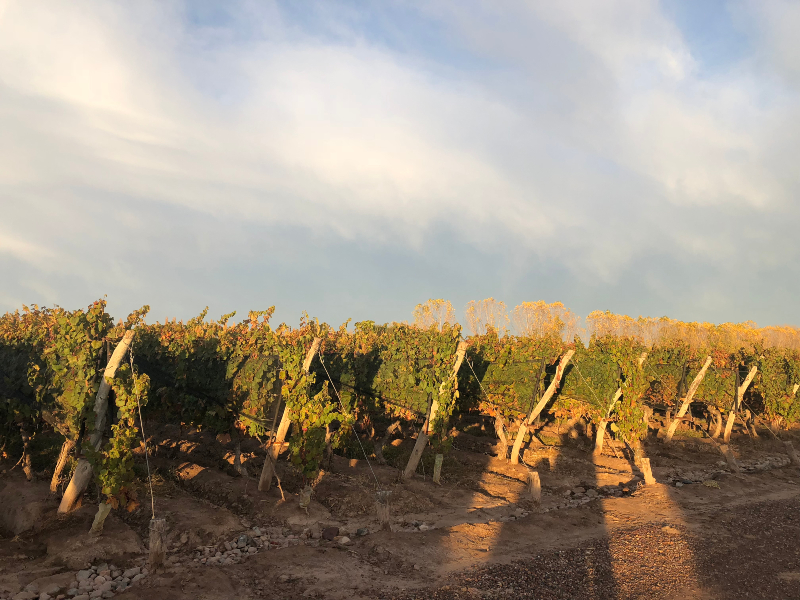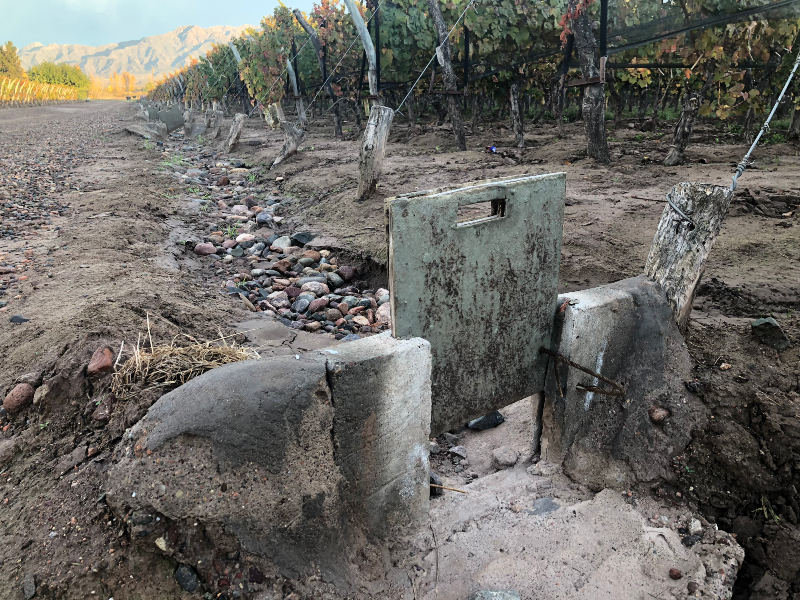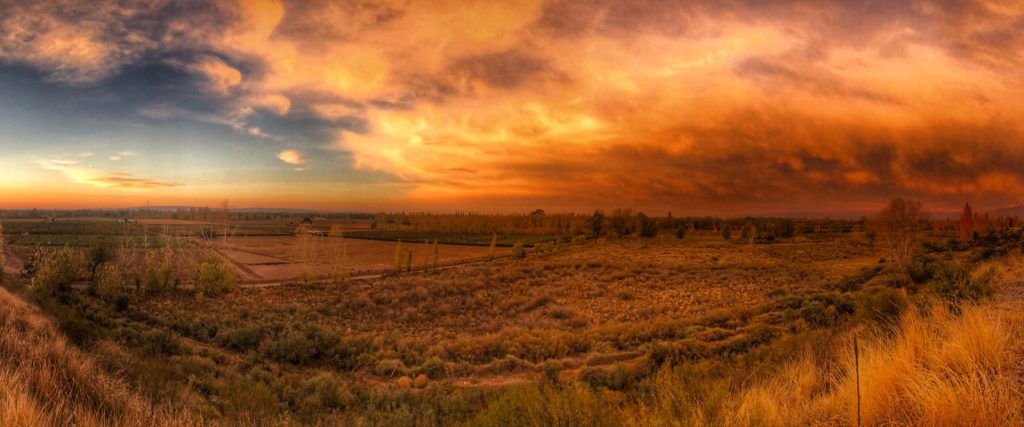Las Compuertas is an iconic district in Luján de Cuyo – Province of Mendoza – located to the north of the Mendoza River, and the west of Vistalba. Its proximity to the Andes and the river makes it the coldest area of Luján de Cuyo, with a thermal range similar to that in the Uco Valley.
The area, part of the Primera Zona in Mendoza, has been the birthplace of great wines that helped to establish Mendoza, and Argentina’s, reputation on the global stage.
The name “Las Compuertas”, or sluice gates, dates back to 1785, when the “Toma de los Españoles” dam was built, the first hydraulic project to be implemented in Mendoza by the Viceroy of the Rio de la Plata to regulate the flooding of the Mendoza River. It wasn’t just a landmark in the history of water management in the region, it also prepared the ground for agriculture.
At the end of the 19th century, the region was mostly dedicated to rearing cattle and growing alfalfa, especially around the Blanco Encalada station, an iconic stop on the trans-Andean railway where cattle was herded before being sent to Chile.
In time, the ideal soil conditions, climate, and access to water and fertilizer, together with a government initiative to encourage the wine industry, saw Las Compuertas transformed into a viticultural hub.
The region thus started to become populated by vineyards, which were planted in high densities and dominated, of course, by Malbec.
An exclusive terroir

One of the distinctive aspects of Las Compuertas is the amount of surface area it has under vine, just 330 hectares out of 1000 overall, with no room for further growth.
However, the soils of the region are quite diverse, shaped by a cone protruding from the Andean foothills, in contrast to the Uco Valley, whose soils come from the Frontal Range.
This means that some sectors are rich in pebbles dusted with a coating of calcium carbonate while other areas are even and lack stones entirely. The soils closest to the hills are a mixture of lime, sand and clay.
As though that weren’t advantage enough, access to water is guaranteed by proximity to the Mendoza River.
A common thread of elegance

If there’s something about which local producers agree it’s the elegance found in the area.
Pablo Cúneo, Head of Oenology at Luigi Bosca, says that in Las Compuertas one finds wines recognized “for their intense fruitiness with notes of plums and a gentle, fleshy texture. The sweet, firm tannins allow, depending on when the grapes are harvested, for fresh, elegant wines – the characteristic qualities of Malbec from Las Compuertas”.
Meanwhile, Pamela Alfonso, the Director of Production at Bodega Alta Vista, emphasizes “the unique complexity of the wines, which are characterized by volume in the mouth, elegant tannins and balanced, ripe polyphenols. Silkiness is a dominant sensation.”
Héctor Durigutti, owner, together with his brother Pablo, of Durigutti Family Winemakers, says that the objective is to “create wines that reflect the essence of the region, emphasizing refinement and elegance, in addition to an aromatic complexity that clearly expresses the place of origin.”
Preservation of viticultural heritage
The preservation of old vineyards in Las Compuertas is a priority for the producers of the area who believe that its unique heritage must be transmitted to future generations.
This is certainly a goal of Lucas Lowi, Director General at Terrazas de los Andes, who is a solid champion of the viticulture of Las Compuertas, who says that winegrowing in the region “is about more than making wine, it has a special mission, the preservation of a unique heritage.”
There are plenty of reasons to make a special effort at preservation in Las Compuertas as it still boasts many decades old vineyards of Malbec that were planted back in 1929 and so have witnessed much of the history of the Argentine wine industry.
Lowi says that their preservation through regenerative agriculture allows for the creation of a “Malbec with exceptional qualities.”
This battle for conservation is made more difficult by expanding urbanization.
In this regard, Héctor Durigutti says that teamwork between small producers, who own on average just 10 hectares a piece, “is crucial to maintaining the heritage of Las Compuertas.”
Bringing together the past, the present and the future
Las Compuertas is a place where history, the terroir and dedicated producers come together to produce exceptional wines that don’t just embody the best of Mendoza but also bear witness to a valuable heritage.
The rich soils, quality of the old vineyards and commitment of winegrowers all suggest that Las Compuertas will continue to be a leading light of Argentine viticulture, bringing together the past, the present and the future.


